Darul Huda: From an Academy to a Movement – Four Decades of Transforming Islamic Education
The Darul Huda, which began as an academy four decades ago in Kerala, India, as a pioneering model for integrating religious and secular knowledge, is now celebrating 40 years of success in knowledge integration, evolving into a dynamic educational movement. Its establishment marked a transformative shift in the traditional Islamic educational system of Kerala, aiming to modernise religious education while fostering community empowerment through globally recognised programs.
This vision materialised under the leadership of prominent figures such as M.M. Basheer Musliyar, C.H. ‘Aydaroos Musliyar, and Dr. U. Bapputty Hajji, with the initiative spearheaded by the Sunni Mahal Federation in the Malappuram district of Kerala. The foundation stone of Darul Huda was laid on 26 December 1983 (25 Rabi' al-Akhir 1404). Two and a half years later, on Wednesday, 25 June 1986 (17 Shawwal 1406), the institution officially admitted its first batch of students.
In Kerala's educational landscape, there had been sporadic attempts at knowledge integration, but none had achieved significant success. However, through persistent dialogue and visionary planning, Darul Huda introduced a groundbreaking model of integration. Nearly a decade and a half of deliberations and experimentation with various models culminated in this transformative approach to education.
The initiative was never limited to merely establishing another educational institution or substituting existing religious centres. Instead, it was driven by meticulous planning, insightful resolutions, practical strategies, and an solid commitment to foundational principles, all of which preceded the commencement of construction and the formal launch of the institution.
When Darul Huda was introduced, it represented a groundbreaking concept for a society accustomed to traditional systems such as Oothupalli[i], Pallidaras[ii], and Islamic-Arabic colleges. Initially, it faced considerable scepticism and resistance. Critics even accused the integration model of attempting to undermine traditional educational systems. However, four decades later, perceptions have shifted significantly. Today, integrated education has become a cornerstone of religious learning, and it is now difficult to imagine a religious educational system without this approach. This transformation underscores the profound impact and widespread acceptance of the integration model pioneered by Darul Huda.
Darul Huda’s mission is to cultivate a generation of qualified scholars who excel in religious education, social empowerment, and propagation. These scholars leverage innovative and contemporary mediums to effectively communicate and engage with modern audiences. To achieve this vision, Darul Huda seamlessly incorporates carefully designed programs into both its curricular and extracurricular activities.
The founders of Darul Huda envisioned extending the socio-religious atmosphere nurtured by Samastha Kerala Jem-iyyathul Ulama and its sub-organizations beyond Kerala, with the aim of benefiting millions of Muslims across India. Recognising the significance of Urdu as an effective medium for communication in this endeavour, they integrated the language into the institution's curriculum. After seven years of foundational education, students were encouraged to engage in propagation and outreach activities. This initiative allowed them to connect with communities in major Indian cities such as Bangalore, Mumbai, Mysore, Delhi, and Kolkata, where they delivered speeches in Urdu, effectively bridging cultural and linguistic divides.
Recognising the importance of educational empowerment, Darul Huda established the National Institute for Islamic and Contemporary Studies (NIICS) in 1999. This initiative aimed to attract students from various states, fostering a more inclusive and diverse learning environment. The inclusion of both Malayali and Urdu-speaking students transformed the institution into a hub for cultural exchange and mutual understanding.
The introduction of the Urdu language, previously unfamiliar to many scholars in Kerala, marked a significant milestone as Darul Huda integrated it into its academic framework. This innovation not only bridged linguistic gaps but also popularised Urdu among Kerala's academic and religious circles. Aspiring to establish itself as a leading Islamic university with a focus on the Islamisation of knowledge, the institution has consistently expanded its reach and influence.
Since being elevated to the status of an Islamic University in 2009, Darul Huda has played a vital role in cognitive development and intellectual contributions to the Islamic educational sphere. It is now a proud member of the Federation of Universities of the Islamic World and the League of Islamic Universities. Additionally, the institution has signed Memorandums of Understanding (MoUs) with over a dozen international universities, underscoring its commitment to global academic collaboration and excellence.
Darul Huda has significantly expanded its educational reach with 30 undergraduate institutions spread across Kerala, Lakshadweep, Karnataka, and Maharashtra. In addition, off-campus centres have been established in Thiruvananthapuram, Karnataka, Andhra Pradesh, Maharashtra, Assam, and West Bengal, ensuring a broader impact on education beyond its primary campus.
To promote education without age barriers, Darul Huda established the Centre for Public Education and Training, which offers a variety of courses designed to cater to the general public. Special emphasis is placed on general education and women’s education on a national scale, alongside plans for specialised programs at the off-campus centres.
Graduates of Darul Huda, known as Hudawis, complete their studies at the secondary, senior secondary, and Kulliyahs (faculties), earning degrees and postgraduate qualifications. Over 28 batches, a total of 3,345 Hudawis have graduated, and currently, 13,295 students are enrolled in various courses.
The institution’s alumni association, HADIA, plays a crucial role in extending the benefits of Darul Huda’s educational initiatives across the nation. With its headquarters in Pannakad, the Hadia Centre for Social Excellence (CSE) operates programs across 16 states, focusing on community upliftment and nation building.
Hadiya also manages 2,689 makhtabas (elementary Islamic schools) and oversees initiatives like the Qurtuba Institute in Kishanganj, Bihar. This institute aims to nurture a generation committed to national development and fostering social harmony.
Darul Huda is actively working to expand its functions and influence across continents, driven by the presence of its students in the GCC (Gulf Cooperation Council) region, Europe, America, and Africa. Recognising this global reach, the institution has implemented structured systems for learning various national and international languages, enabling effective communication and the propagation of Islamic knowledge worldwide.
A notable initiative under the Hadia Centre is the Read Islamic School, which offers both online and offline courses. This program currently serves students from 23 countries, providing them with access to basic religious education. Recognising the potential for further global impact, Darul Huda has been actively exploring long-term projects, including the establishment of an international campus for foreign students outside India. Additionally, leveraging advancements in information technology, the institution has been discussing plans to establish an online Islamic university, which will enhance its reach further.
Another key objective of Darul Huda Islamic University is to systematically introduce the Sunni Mahal Federation, its founding organisation, to regions outside Kerala. This effort aims to ensure that the federation's vision and mission reach a broader audience, promoting its structured approach to local community development based on Mahallu or Mohalla[iii] system.
Forty years ago, when Darul Huda Islamic University began its journey, it encountered scepticism due to its innovative departure from the traditional educational systems of the time. Despite these initial doubts, the foundation stone was laid by Pannakad Sayyid Muhammad Ali Shihab, and the initiative was inaugurated with prayers by Kanniyath Ahmad Musliyar, marking the start of a transformative chapter in Islamic education.
Today, by the grace of the Almighty, Darul Huda has grown into a globally recognised institution.
The Quran's guidance resonates deeply with Darul Huda's ethos:
“Let there be a group among you who call others to goodness, encourage what is good, and forbid what is evil—it is they who will be successful” (Surah Aal-E-Imran, 3:104).
“Compete with one another in doing good” (Surah Al-Baqarah, 2:148).
End notes:
[i] "Oothupalli" refers to traditional Islamic learning centres in Kerala, where young children were taught the basics of Islam, including the Qur'an, tajwīd (proper recitation), and foundational religious knowledge. These centres often operated in mosques or small community spaces under the guidance of a local teacher (ustād or mullah). The focus was primarily on memorisation and basic understanding of religious texts.
[ii] Pallidaras" were centres of advanced Islamic education traditionally located within mosques. These institutions served students who had completed their basic studies at Oothupallis. A single teacher, referred to as the Mudarris, was responsible for teaching all subjects. Occasionally, the Mudarris would be assisted by an assistant Mudarris to manage the workload.
[iii] The Mahallu (Arabic: محلة) or Mohalla system is a community-based administrative structure commonly found among Muslims in Kerala, India, and some other regions. Rooted in Islamic tradition, it serves as a decentralised organisational model centred around the local mosque. The Mahallu system plays a significant role in the socio-religious and educational development of the community.
About the author :
Dr. Bahauddin Mohammed Nadwi is an esteemed Indian Islamic scholar, author, and academician, currently serving as the Vice-Chancellor of Darul Huda Islamic University. Renowned for his scholarly works and visionary leadership, he has played a pivotal role in integrating religious and secular education in India. Recognised globally for his influence, he is listed among the 500 Most Influential Muslims in the World.
Disclaimer
The views expressed in this article are the author’s own and do not necessarily mirror Islamonweb’s editorial stance.

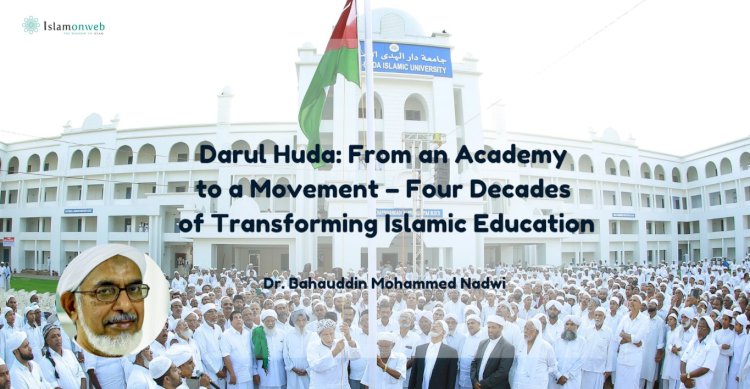


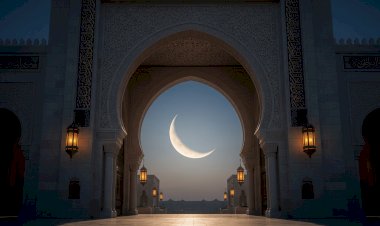
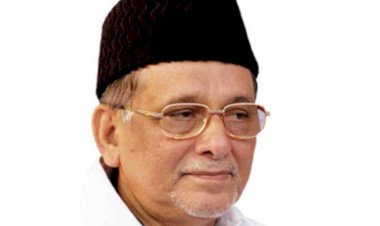
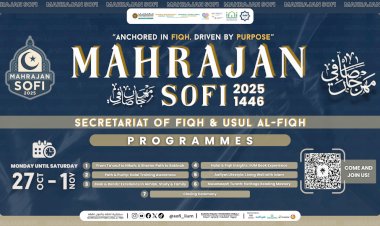
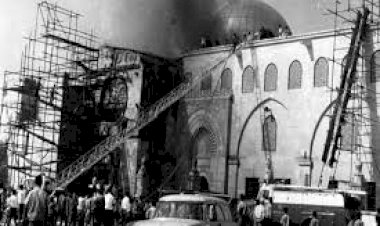
















Leave A Comment